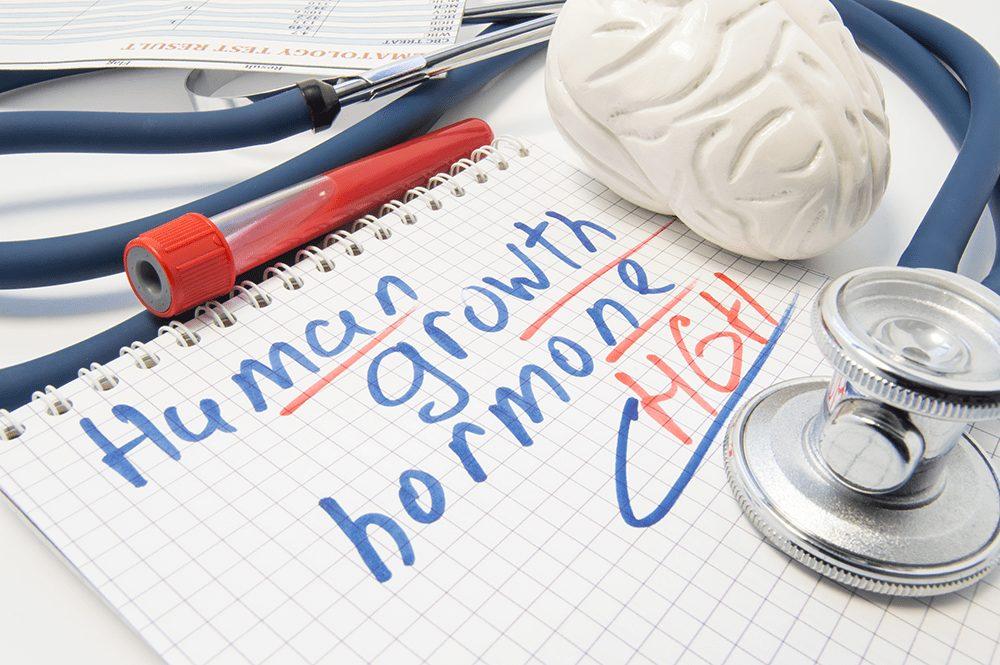The Master Hormone HGH
HGH has been called a master hormone because of its ability to affect all the other hormones and organs throughout the body. It has repairing and restorative abilities which can reverse the damage, and facilitate re-growth of failing organs somewhat, something no other hormone can do. It is unclear, however, whether maintaining physiologic levels of HGH or IGF-1 equivalent to those of a 25- to a 35-year-old person will extend the length of human life. But it is worth noting that the Journal of Clinical Endocrinology and Metabolism reported in 1997 that healthy centenarians have high serum IGF-1 concentrations.
Human Growth Hormone levels decline with age. After the age of 25, levels begin to decline at a rate of 10 – 15% per decade. As the levels of growth hormone decrease with age, so do the levels of IGF-1, falling by nearly 50% after the age of 40. The decline in HGH is known as somatopause.
Every hormone has a ‘pause’ and human growth hormone is no different.
(©Gregory W. Petersburg, D.O. All rights reserved. Living Younger, pp. 183-184.)
DHEA
DHEA levels decrease progressively from a peak at age 25 to less than 20% of that peak before the age of 70. Many people over the age of 40 produce inadequate levels of DHEA. Levels are typically low in those with chronic diseases such as obesity, diabetes, deficiencies, cancer, high blood pressure, heart disease and AIDS. Elevated insulin levels decrease DHEA levels; one reason why hyperinsulinemia increases vascular disease.
(©Gregory W. Petersburg, D.O. All rights reserved. Living Younger, pg. 139.)
Melatonin
Melatonin is produced naturally in the body, by the pineal gland in the brain. It is a fundamental regulator of the body’s inner clock, or circadian rhythm, which determines the 24-hour sleep/wake cycle. Levels are higher at night, are suppressed by bright light, and decline as we age. The length and height of the melatonin peak at nighttime determines the circadian phase of the biological clock and governs vital body parameters such as the variation of hormone levels, body temperature and sleep-wake cycles. Hormones such as estrogens, testosterone, DHEA, growth hormone, and cortisol are subject to circadian fluctuations. Over 100 body functions fluctuate over a 24-hour period and are dependent on sunlight and darkness as cues.
Melatonin derives from the essential amino acid L-tryptophan. Tryptophan, consumed in foods we eat (especially turkey and milk), is converted into the neurotransmitter serotonin, and is then further metabolized into melatonin at night. Melatonin levels are higher at night because bright light suppresses melatonin production.
The pineal gland is important, for not only producing melatonin but it also helps in restoring the thymus gland. The thymus gland, located in the upper chest, is a player in immune function by producing T-cells and natural killer cells. Unfortunately, the thymus begins to shrink drastically after about the age of 12. Because of the pineal gland’s direct effect on the thymus gland, replenishing adequate melatonin levels may improve immunity.
As we age, melatonin levels decrease. That is one reason why older people sleep less, even though they need the same amount of sleep as they did when they were younger adults. By about the age of 45 the pineal gland runs down. While melatonin secretion slowly declines over many years, in middle age the hormone level plummets.
(©Gregory W. Petersburg, D.O. All rights reserved. Living Younger, pg. 141.)


